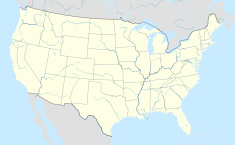
James Morris Lawson Jr. is an American activist and university professor. He was a leading theoretician and tactician of nonviolence within the Civil Rights Movement. During the 1960s, he served as a mentor to the Nashville Student Movement and the Student Nonviolent Coordinating Committee. He was expelled from Vanderbilt University for his civil rights activism in 1960, and later served as a pastor in Los Angeles for 25 years.
The National Association of Free Will Baptists (NAFWB) is a national body of Free Will Baptist churches in the United States and Canada, organized on November 5, 1935 in Nashville, Tennessee. The Association traces its history in the United States through two different lines: one beginning in the South in 1727 and another in the North in 1780. The "Palmer line," however, never developed as a formal denomination. It consisted of only about three churches in North Carolina. The NAFWB is the largest of the Free Will Baptist denominations.

The Nashville sit-ins, which lasted from February 13 to May 10, 1960, were part of a protest to end racial segregation at lunch counters in downtown Nashville, Tennessee. The sit-in campaign, coordinated by the Nashville Student Movement and the Nashville Christian Leadership Council, was notable for its early success and its emphasis on disciplined nonviolence. It was part of a broader sit-in movement that spread across the southern United States in the wake of the Greensboro sit-ins in North Carolina.
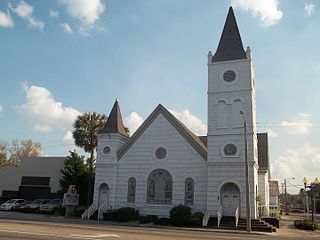
The black church is the faith and body of Christian denominations and congregations in the United States that minister predominantly to African Americans, as well as their collective traditions and members. The term "black church" can also refer to individual congregations.

Nutbush is a rural unincorporated community in Haywood County, Tennessee, United States, in the western part of the state, approximately 50 miles northeast of Memphis. It was established in the early 19th century by European-American settlers who bought enslaved African Americans to develop the area's cotton plantations. The houses and churches that were built during this time still stand.

American Baptist College is a private, Baptist college in Nashville, Tennessee, affiliated with the National Baptist Convention, USA. Founded in 1924, its predecessor in black Baptist education was Roger Williams University, a Nashville college begun in the late-19th century and closed in the early 20th century. Upon full accreditation by the American Association of Bible Colleges, ABTS dropped use of the term "Theological Seminary" and renamed itself American Baptist College. The college has an 82% acceptance rate. In Fall 2019, 77% of students were retained after the first year of attendance.
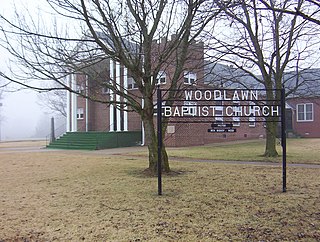
Woodlawn Baptist Church and Cemetery, also known as Woodlawn Missionary Baptist Church, is a historic building in Nutbush, Haywood County, Tennessee, in the United States. It is on Woodlawn Road, south of Tennessee State Route 19.

Cordy Tindell Vivian was an American minister, author, and close friend and lieutenant of Martin Luther King Jr. during the civil rights movement. Vivian resided in Atlanta, Georgia, and founded the C. T. Vivian Leadership Institute, Inc. He was a member of the Alpha Phi Alpha fraternity.

Roger Williams University was a historically black college in Nashville, Tennessee. It was founded in 1866 as the Nashville Normal and Theological Institute by the American Baptist denomination, which established numerous schools and colleges in the South. Renamed for Roger Williams, the founder of the First Baptist Church in America, it became the largest Baptist college in the area for educating African Americans. It was founded in a period when Protestant mission groups sponsored numerous educational facilities for freedmen in the South.
Kelly Miller Smith Sr. was a Baptist preacher, author, and prominent activist in the Civil Rights Movement, who was based in Nashville, Tennessee.

Richard Henry Boyd was an African-American minister and businessman who was the founder and head of the National Baptist Publishing Board and a founder of the National Baptist Convention of America, Inc.

The First Baptist Church on North Ripley Street in Montgomery, Alabama, is a historic landmark. Founded in downtown Montgomery in 1867 as one of the first black churches in the area, it provided an alternative to the second-class treatment and discrimination African-Americans faced at the other First Baptist Church in the city.
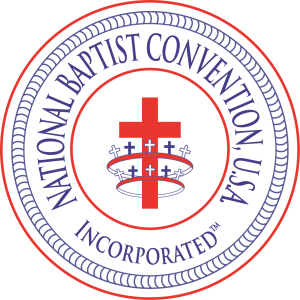
The National Baptist Convention, USA, Inc., more commonly known as the National Baptist Convention, is a primarily African American Baptist Christian denomination in the United States. It is headquartered at the Baptist World Center in Nashville, Tennessee and affiliated with the Baptist World Alliance. It is also the largest predominantly Black Christian denomination in the United States and the second largest Baptist denomination in the world.
The following is a timeline of the history of the city of Nashville, Tennessee, United States.

The March trilogy is an autobiographical black and white graphic novel trilogy about the Civil rights movement, told through the perspective of civil rights leader and U.S. Congressman John Lewis. The series is written by Lewis and Andrew Aydin, and illustrated and lettered by Nate Powell. The first volume, March: Book One, was published in August 2013, by Top Shelf Productions. and the second volume, March: Book Two, was published in January 2015, with both volumes receiving positive reviews. March: Book Three was published in August 2016 along with a slipcase edition of the March trilogy.

Preston Taylor was an African-American businessman, minister and philanthropist. In the early 20th century he was considered one of the most influential leaders of Nashville, Tennessee's black community. He created Greenwood Cemetery, which is the second oldest African-American cemetery in Nashville, and Greenwood Park, which was the first park for African-American communities in Nashville. A later public housing project was named in his honor.

Juno Frankie Seay Pierce, also known as Frankie Pierce or J. Frankie Pierce, was an American educator and suffragist. Pierce opened the Tennessee Vocational School for Colored Girls in 1923, and she served as its superintendent until 1939. The school continued to operate until 1979. The daughter of a slave, Pierce addressed white women at the inaugural convention of the Tennessee League of Women Voters, held in the Tennessee Capitol in May 1920.
Mary Salynn (Selyn) McCollum was the only white female Freedom Rider during the leg from Nashville, Tennessee to Birmingham, Alabama on May 17, 1961.
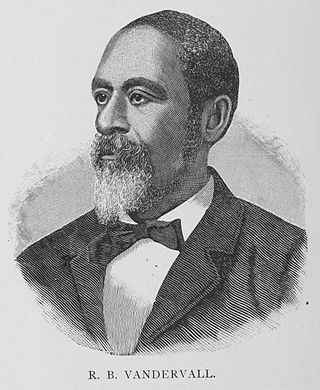
Randal B. Vandervall was an early African-American Baptist preacher in Nashville, Tennessee. He began preaching while still a slave. After emancipation, he helped found Roger Williams University.
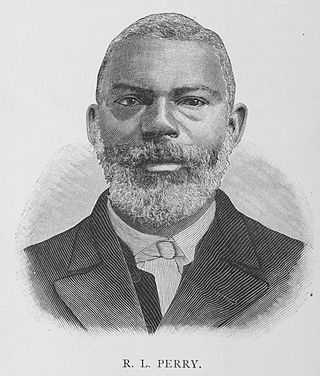
Rufus L. Perry was an American educator, journalist, and Baptist minister from Brooklyn, New York. He was a prominent member of the African Civilization Society and was a co-founder of the Howard Colored Orphan Asylum, which developed from it. He was the editor of numerous newspapers and journals, most notably the National Monitor. He was a prominent Baptist, and in 1886 he founded the Messiah Baptist Church, where he was pastor until his death. He was also a classical scholar.


